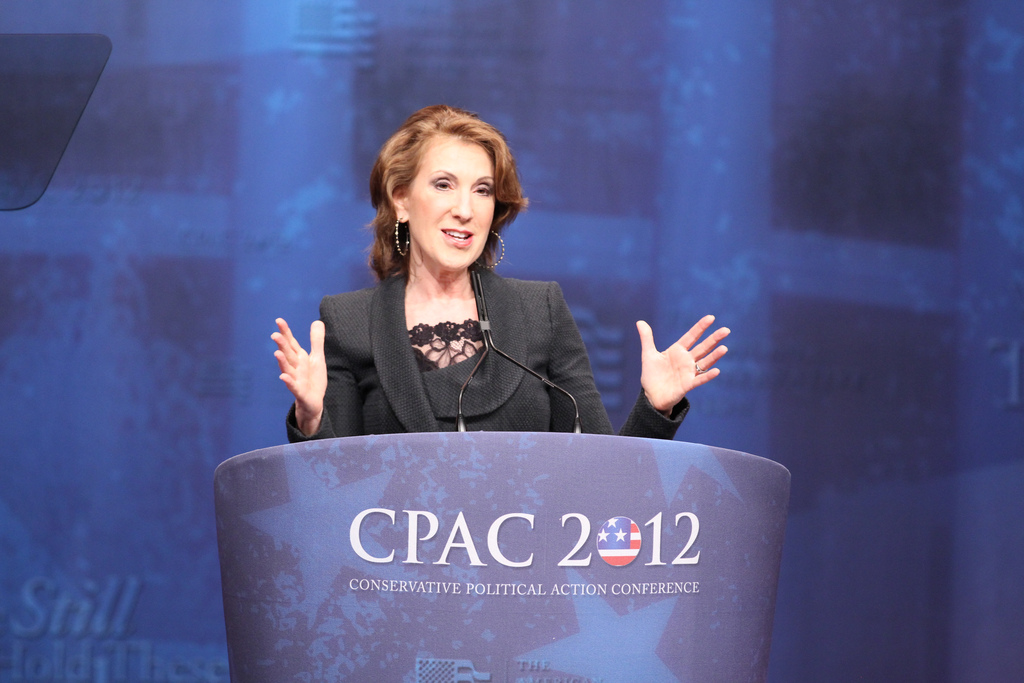Archived
First debate democracy
The first presidential debate on September 26 is expected to be the most watched debate in history and is quickly approaching. Hillary Clinton and Donald Trump must prove to the…
Archived
Flickr- Mark Taylor
It’s July, which means two things in DC: humidity and campaign fundraising disclosure. As PACs and candidates like Bernie Sanders and Ted Cruz release their second quarter figures, observers can gauge how the field is shaping up at this early stage.
For candidates at the top, this deadline serves as a prime opportunity for muscle-flexing – showing dominance to potential donors and other candidates. For candidates facing longer odds, these releases are crucial for proving long-term viability. Carly Fiorina, former Hewlett-Packard CEO and candidate for the Republican nomination, released her numbers Tuesday. They aren’t pretty.
Fiorina’s campaign only raised $1.4 million in the second quarter, putting her well below the other Republicans that have released totals thus far. Running and winning a presidential campaign is growing rapidly more expensive, and Fiorina’s fundraising haul raises serious questions about whether she’ll have the finances to make it to next year.
Fiorina’s campaign isn’t the only organization pushing for her election, though. CARLY for America, Fiorina’s Super PAC, raised more than $3.4 million in the second quarter alone. It’s disheartening, but not altogether surprising that an outside group can draw more than double the amount raised by the official campaign.
As the Washington Post’s Matea Gold argues, this disparity is not just a surprising quirk of the way we run primaries, but part and parcel of a largely unregulated system that allows campaigns and ostensibly independent outside groups to work together toward a candidate’s election. In Fiorina’s case, the Super PAC backing her candidacy has assumed many of the campaign’s traditional roles, including endorsement-chasing, voter outreach, and even event decoration.
CARLY for America, so named because the FEC ruled out the previous “Carly for America” moniker for explicitly referencing Fiorina’s name, points to the farcical barrier that supposedly divides campaign from outside group. Over the course of this election cycle in particular, many presidential hopefuls have been able to work in close conjunction with their Super PACs, even fundraising directly for the groups.
In many ways, Fiorina is running the quintessential post-Citizens United campaign. By outsourcing critical campaign functions to a Super PAC unrestricted by contribution limits, Fiorina can skirt many of the limitations that are designed to control the flow of cash into elections.
Perhaps because we often so feel inured to the big-money status quo, it feels strange to take a step back and examine the landscape: an outside group backing a candidate, and taking the lead on several key campaign functions, has raised more than double the amount the official campaign could rake in. It’s difficult to say where the campaign ends and the Super PAC begins.
With the explosion of outside money and influence on elections, campaign outsourcing has become increasingly popular. Without reform, it will become the new normal. This is precisely why empowering campaign finance regulators, rewriting the rules on outside spending, and updating our jurisprudence to reject the unregulated flow of cash into campaigns is so important.
Archived
The first presidential debate on September 26 is expected to be the most watched debate in history and is quickly approaching. Hillary Clinton and Donald Trump must prove to the…
Archived
Issue One Advisory Board member and former chief ethics lawyer for President George W. Bush asked Hillary Clinton the only question that matters in the discussion about the Clinton Foundation:…
Archived
So now you want the FEC to work, Donald McGahn? It’s a little too late. Yesterday, Donald Trump’s top political attorney and former Federal Election Commission Chair Donald McGahn spit…

